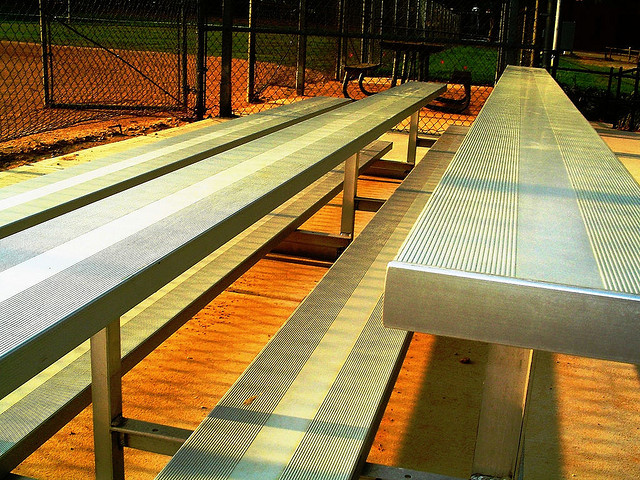 Do the Illinois Constitution and the School Code exempt local school districts from municipal zoning regulations? In Gurba v. Community High School District No. 155, a unanimous Illinois Supreme Court held, in an opinion by Justice Burke, that the answer was “no.” Our report on the underlying facts and lower court opinions is here. Our report on the oral argument is here.
Do the Illinois Constitution and the School Code exempt local school districts from municipal zoning regulations? In Gurba v. Community High School District No. 155, a unanimous Illinois Supreme Court held, in an opinion by Justice Burke, that the answer was “no.” Our report on the underlying facts and lower court opinions is here. Our report on the oral argument is here.
Gurba began when the defendant school board decided to replace the bleachers at the high school football stadium after a failed structural inspection. The Board notified the Regional Superintendent of Schools and received approval and a building permit. They started work without seeking a building permit, zoning approval or storm water management approval from the City.
The City issued a stop-work order. The Board declined to halt construction on the grounds that school property used for school purposes was exempt from all local zoning. Three local homeowners filed suit seeking to privately enforce the zoning regulations. The City filed a third-party complaint. On cross-motions for summary judgment, the court held that the school board was subject to the zoning regulations. The Appellate Court affirmed.
The Supreme Court affirmed the Appellate Court. The Court began by pointing out that, as a home rule municipality, the city had broad powers, including the power to regulate for the protection of the health, safety, morals and welfare of the public. That included zoning. The school board argued that the city’s zoning and storm water ordinances unduly interfered with the General Assembly’s constitutional authority over public education. However, the Court pointed out that the School Code (105 ILCS 5/10-22.13a) authorized a school board to seek zoning changes, variations or special uses for property controlled by the district. The board argued that the language was permissive, not mandatory, but the Court concluded that there was no need to authorize such exceptions if the schools weren’t subject to zoning in the first place. The school board argued as a fallback position that the power to seek variances only applied to school owned land not being used for school purposes, but the Court found that the plain language was to the contrary.
The school board next argued that the city was estopped from objecting to its plans because it hadn’t registered with the regional superintendent to receive notice of the school board’s building plans pursuant to the Health/Life Safety Code. The problem with that argument, the Court found, was that the Health/Life Safety Code prescribed minimum standards for public school facilities; it said nothing about zoning-type issues, such as the size, height, and location of buildings, setback from property lines and the due process rights of neighboring property owners.
Image courtesy of Flickr by Suzie Tremmel (no changes).
